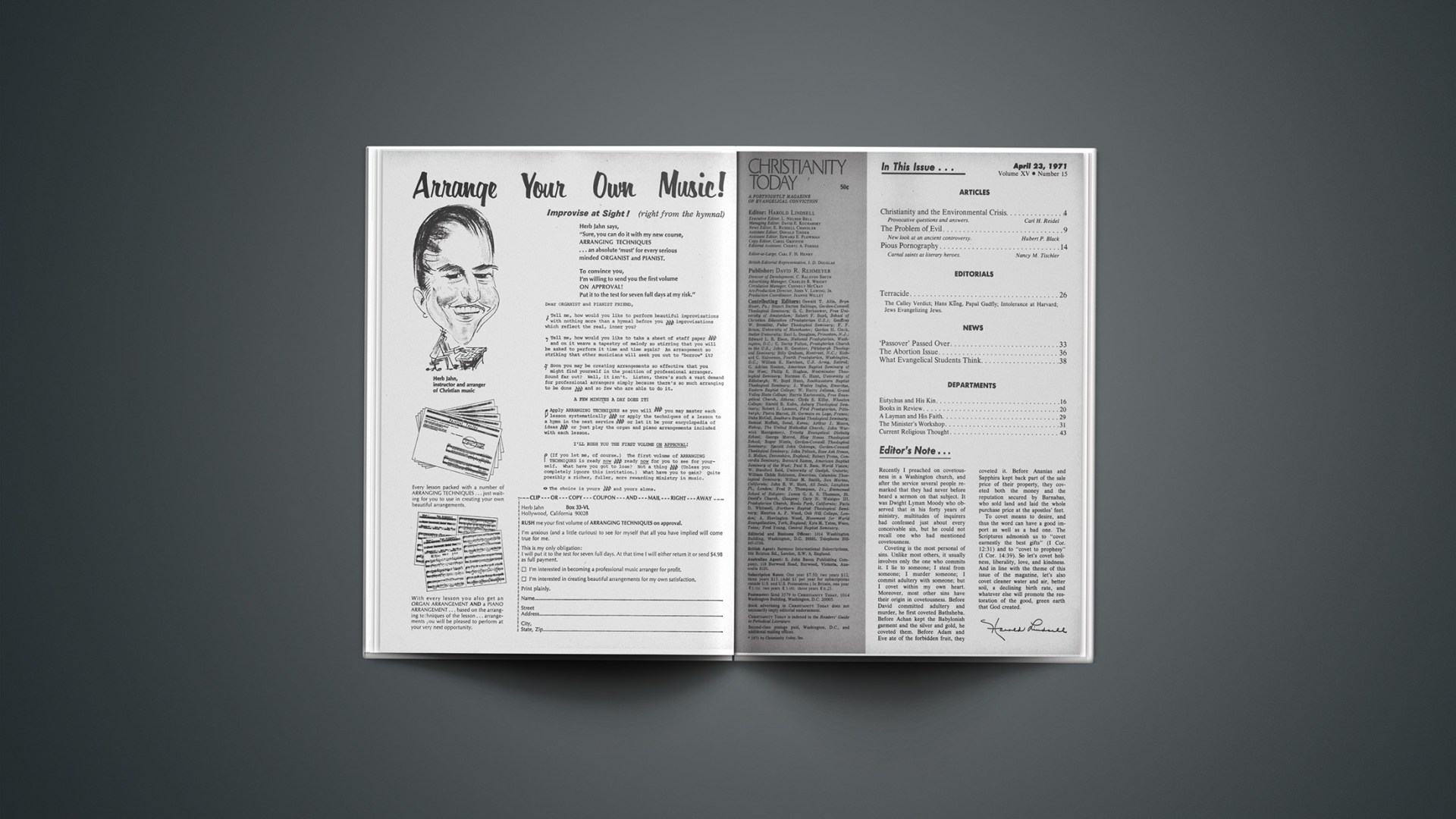Recently I preached on covetousness in a Washington church, and after the service several people remarked that they had never before heard a sermon on that subject. It was Dwight Lyman Moody who observed that in his forty years of ministry, multitudes of inquirers had confessed just about every conceivable sin, but he could not recall one who had mentioned covetousness.
Coveting is the most personal of sins. Unlike most others, it usually involves only the one who commits it. I lie to someone; I steal from someone; I murder someone; I commit adultery with someone; but I covet within my own heart. Moreover, most other sins have their origin in covetousness. Before David committed adultery and murder, he first coveted Bathsheba. Before Achan kept the Babylonish garment and the silver and gold, he coveted them. Before Adam and Eve ate of the forbidden fruit, they coveted it. Before Ananias and Sapphira kept back part of the sale price of their property, they coveted both the money and the reputation secured by Barnabas, who sold land and laid the whole purchase price at the apostles’ feet.
To covet means to desire, and thus the word can have a good import as well as a bad one. The Scriptures admonish us to “covet earnestly the best gifts” (1 Cor. 12:31) and to “covet to prophesy” (1 Cor. 14:39). So let’s covet holiness, liberality, love, and kindness. And in line with the theme of this issue of the magazine, let’s also covet cleaner water and air, better soil, a declining birth rate, and whatever else will promote the restoration of the good, green earth that God created.










